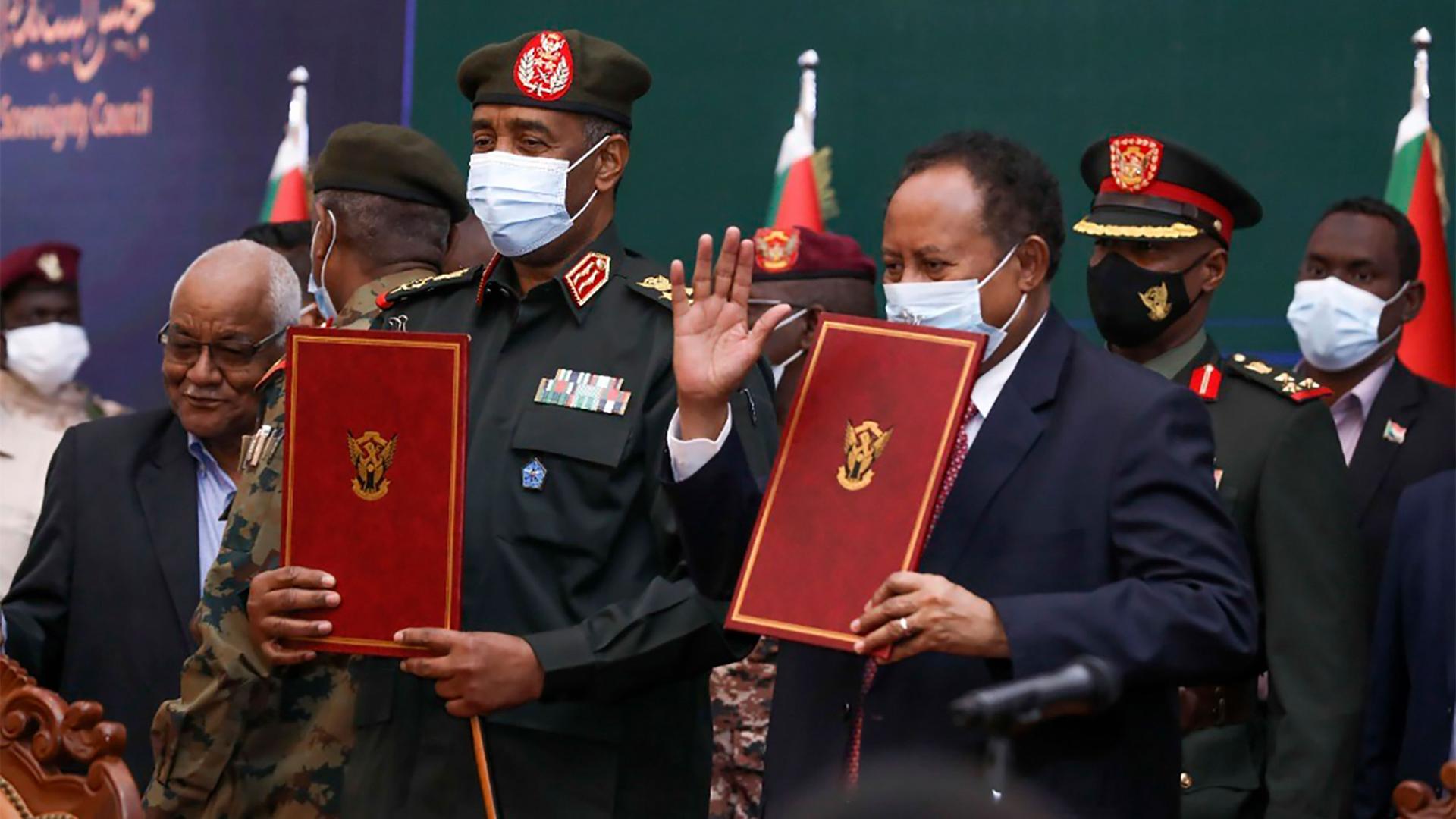Nearly a month after he was removed from office and put under house arrest, Sudanese Prime Minister Abdalla Hamdok has been reinstated to his position as the country’s interim civilian leader until it can hold democratic elections.
In Sudan, Hamdok signed a 14-point deal with General Abdel Fattah al-Burhan — the man behind the recent military takeover — to return to office, release political detainees and return to the 2019 constitutional agreement that was meant to steer Sudan toward democracy.
“We must put an end to the bloodshed.”
“I know our people are capable of sacrificing,” Hamdok said on Sunday through an interpreter. “But we must put an end to the bloodshed.”
According to the Sudan Doctors Committee, more than 40 people have been killed by security forces during the weekslong protests against the military, including a 16-year-old boy who died after security forces shot him in the head.
Hamdok said he signed the agreement to end the violence, but also to put the country’s transition back on track.
“This agreement offers the possibility, because we can preserve the gains of the past two years,” Hamdok said, citing the end of Sudan’s decadeslong international isolation and removal from the US’ state sponsors of terror list.
Related: ‘Millions March’ protests planned across Sudan as military doubles down on power grab
The military takeover last month not only threatened Sudan’s hard-won gains, but also put the country’s hope for a democratic future into question.
Still, the military has maintained they acted for the benefit of Sudan, and have denied the labeling of their actions as a military coup.
“By signing this political action, we were able to establish a real foundation for a transitional period.”
“By signing this political action, we were able to establish a real foundation for a transitional period,” said al-Burhan at Sunday’s conference.
Mohamed Hamdan “Hemeti” Dagalo, head of Sudan’s Rapid Support Forces (RSF), wrote on Twitter that these “corrective actions” taken by the military in October to effectively dissolve the transitional government were “absolutely necessary.”
And Kholood Khair of Insight Strategy Partners told The World from Khartoum that“the military seems to have gotten a leg up over the civilians in that it has been able to craft a new agreement where it still maintains a lot of power and really hasn’t had to give much up.”
But the military, she said, has proven to be an unreliable partner, as shown by the events of the past month.
By signing the deal, Khair said that Hamdok has become politically weakened, and has faced resounding criticism from the streets and from his own supporters.
Related: Sudan’s ousted ambassador to the US says resorting to ‘the gun’ doesn’t aid the revolution
“This was an agreement that was unilaterally agreed [upon] and unilaterally brokered by the prime minister without the consultation of any civil society group, whether that’s political parties or initiatives, organizations or the street itself,” Khair said.
Sunday’s protests in the streets of Khartoum, which previously had called for Hamdok’s release, have now turned against him.
The Sudanese Professionals Association (SPA), an umbrella professional group that was pivotal in Sudan’s 2019 revolution, has rejected the deal.
Hamdok is now also facing opposition from his own ministers.
Related: Sudanese protester to military: ‘Our numbers are too big to be ignored’
“We are against what we saw on the TV, because it is supportive of the coup,” said Sudan’s Foreign Minister Mariam al-Sadig al-Mahdi during a conference held by the Atlantic Council.
She added that she and several other ministers have since submitted their letters of resignation.
Our coverage reaches millions each week, but only a small fraction of listeners contribute to sustain our program. We still need 224 more people to donate $100 or $10/monthly to unlock our $67,000 match. Will you help us get there today?
